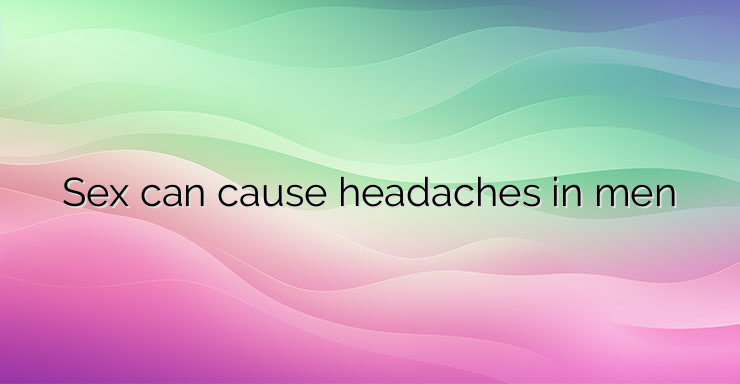Sexual Headaches: When Pleasure Turns Painful
Sex is often touted as a method to release tension, relieve headaches, and promote physical and mental recovery. However, for some men, the experience isn’t always pleasurable. Enter sexual headaches, a condition experienced by approximately 1% of the male population. Recognized by the medical community, sexual headaches are included in the classification of different types of headaches.
Understanding Sexual Headaches
In most cases, sexual headaches manifest as a dull pain in the neck and head during sexual intercourse, reaching its climax at orgasm. The intensity of the pain can be debilitating and may persist for hours or even days afterward. While not every sexual encounter triggers these headaches, they can significantly dampen the enjoyment of intimate moments.
Causes and Mechanisms
The exact cause of sexual headaches remains largely unknown, but scientists speculate a combination of genetic predisposition and chronic stress may alter the brain’s response to orgasmic sensations. Some researchers even consider sexual headaches to be a form of post-orgasmic disease syndrome, which includes symptoms like muscle pain, severe fatigue, and flu-like sensations.
Treatment Options
Currently, there is no universally recognized treatment for sexual headaches. However, medications such as Indomethacin and certain beta blockers are sometimes prescribed to alleviate symptoms. Despite ongoing research, specific therapies remain elusive.
The Post-Orgasmic Disease Syndrome
The post-orgasmic disease syndrome presents similar symptoms to sexual headaches, including muscle pains, fatigue, and headache. French authors have even given it the poetic name “la petite mort,” or “the little death.” This term refers to the almost unconscious state of bliss following orgasm, which some interpret as a metaphorical death of self.
Coping with Sexual Headaches
While sexual headaches and related syndromes can be distressing, they shouldn’t deter anyone from intimacy. It’s important for individuals experiencing these issues to seek solutions rather than identify solely with the problem. Finding the right treatment or coping mechanisms can help restore enjoyment to intimate moments.


Leave a Reply